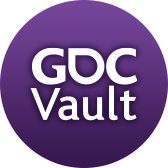[With the 'first-500' pass deadline almost due for November's GDC Next, GDC's Director of Online Community Patrick Miller reached out to many games industry luminaries to see where they think the future of video games is headed. This interview is the latest installment of a multi-part series that will run up until shortly before the 'future of games' conference, which takes place in Los Angeles, CA from November 5-7, co-located with the App Developers Conference.]
Thomas Bidaux has worn many hats in the game industry; former development director at NCsoft, CEO of online game consulting firm ICO partners, and advisory board member for GDC Next. Read on to find out why he thinks cloud computing, crowdfunding, and user-generated content are key for developing the next generation of games.
Patrick Miller: It seems to me that online games evolve alongside major changes in how we access the Internet. Highly-visual MMOs weren't widespread until high-speed broadband was widely available; consoles weren't big on online games until Wi-Fi and cable internet made it easier to ensure that players could connect their consoles to a home network in the living room; asynchronous multiplayer wasn't huge until people started carrying around phones with mobile broadband.
Given that, what do you think is the next major change in network tech and how do you think it'll affect the development of online games?
Thomas Bidaux: I would say cloud computing. And I don't mean to say cloud gaming specifically, there is still much to be proven on this to convince me. But there is a lot of untapped potential from cloud computing in the way games are conceived. I think social games, mobile games, and the new generation of online PC games are starting to leverage this, but it has still much to provide.
I realize I am slightly dodging the question -- it was very much framed with consumer technologies rather than the industrial solutions -- but it feels to me that this is an important point for current studios to consider.
PM: This might sound like kind of a silly question, but from my perspective, it seems like the fact that people are jerks online is actually a huge factor that turns a lot of people off on the prospect of playing games online. Would you say that's accurate? How can devs encourage harmonious online player communities?
TB: Of course people are jerks online. And they want to protect their rights to behave so. This is nothing specific to games, but as a medium that makes people prone to passionate outbursts, it is a very visible part of the communities' behaviors.
There is no solution to the problem, only ongoing effort to make it acceptable. The prominent competitive games have interesting initiatives to help communities self regulate themselves. And that's good.
For smaller studios, I think there is mostly a need to accept that building an online game requires to embrace the fact that building the community is an integral part of the process and that they cannot ignore it. Catering to your community early on, actively communicating on your aspiration for the game tone and enforcing good behavior rules right from the beginning is the best way to grow a social space of quality. I am not saying it is easy, but taking care of this early can sure make it less painful.
PM: How do you see the rise of cloud computing tech changing the industry?
TB: The nicest change would be the one you don't want players to notice: convenience.
We can already see the next gen of consoles touting the fact a lot of the user data relevant to the games will be stored in the cloud, making the device less relevant as far as your information are concerned. Of course, that's already been the case with a large number of games on Steam too.
I think there is still a lot that can be done to make the experience of playing games seamless to the users -- you can also start to look at cross-platform gameplay and state conservation.
This should become more and more the norm.
Then, you also have a much larger, complex change that I can see happening further down the line, with more and more of the game logic handled outside of the client, and cloud computing is a key component for this. As this happens, the technical constraints change -- and different constraints lead to new designs and that is always interesting.
PM: What kind of work do you see out there (or expect to see out there in the future) using cloud computing do you think shows promise?
TB: I don't have a specific project in that regard. I think the whole social gaming space was made possible with the cloud. Mobile games should follow suit (already is in many ways and the Google announcement at the last i/o also goes in that direction). I am looking at PC games using more cloud computing (as opposed to dedicated servers) to make games (especially their multiplayer component) survive after their gold rush and go into being niche, but still available to their community.
PM: How should future-minded game devs start thinking about and playing with cloud tech?
TB: The biggest risk would be for them to consider this as being handled by the platforms (Xbox; PS; Steam) and not looking at owning them. I don't think this is a particularly difficult challenge, but you need to properly look into it and not dismiss it as below your attention.
PM: You've talked before about the problem of content creation for MMOs and how "clever" procedural content generation could help address that problem. What have you seen so far that shows promise?
TB: Short answer would be EverQuest Next.
I think MMOs are such large projects that they generally integrate trends that were hot when their production started. Recent MMOs haven't been particularly focused on UGC or procedural content. The good thing they have for them is that they are around for a long time - when they don't get stupidly shut down for no good reasons -- that allowed some of them, like, say, City of Heroes (as an example randomly chosen) to evolve to a point where they could provide UGC through the mission creator.
I find the Valve Workshop initiatives extremely interesting in regards to a way to integrate UGC to games (if not for MMOs).
Procedural content seems to be harder to design in a way to create good content consistently, so I don't have proper example coming to mind right away, but I would imagine this is being explored by many studios.
PM: How do you see the challenges of content creation changing in the future?
TB: Well, both UGC and procedural creation have some challenges in common. They both go for volumes and when you create large amount of content, qualifying them, making sure the best content is the one brought forward to the audience is tricky. Because we talk about volume, you need to find a good systemic solution. Crowdsourcing the evaluation helps, but only up to a point. There is no question that you can create good content this way, the challenge is how you find the good content in the haystack.
Then, they have their own difficulties. UGC requires good UI, good documentation, you are basically running a project inside your project. Long term, it should pay off, but when you get started, it is tempting to just not bother and do it all yourself. With procedural content, it is tricky to make the content really really good. You need to do a lot of trial and error to find a formula where the content is balanced and fun and not repetitive. It works better with some content than with other.
PM: How do you think crowdfunding will change the game industry in the future? What kind of impact do you think it'll have on existing dev-publisher-player relationships? Where do you see crowdfunding ten years from now?
TB: I think crowdfunding has already brought some small changes to the industry. Studios see their relationship to their audience in a different light. We have seen initiatives from publishers clearly taking inspiration from crowdfunding trends. On the platform side, Greenlight seems to have come from there as well.
And it will evolve. Crowdfunding a year ago and now is quite different, Next year, it will have changed again, but I would surprised that it disappears. I really like how it forces studios to think as their own publisher very early in the process, how it makes them understand a number of issues that are usually regarded as the publishers' problem. It should help our industry mature as we all learn of the different components that go into making a game and bringing it to market.
An interesting side effect of crowdfunding is the growth of the merchandising revenue for video games properties, not just for large franchise but also for humbler projects.
As for crowdfunding in ten years, keeping in mind I am a proponent of the phenomenon, I don't think you can predict where it will be. It could be just a bit larger than today, it could gigantic, it could be quite different, but I would be very surprised for it not to be awesome.
PM: Sometimes it seems like the best ideas in tech and games simply didn't happen at the right time. Is there anything that you think was too early to succeed -- perhaps something that we might see come back once the time is right?
TB: I am a big Oculus fan, so you can definitely say that VR fits what you are describing quite well. Even if the Rift still has much to prove, it doesn't seem like it is a "future looking" statement...A more intriguing idea to me is location-based games. Mostly because to this day, I cannot envision a game that would fit with the notion and be properly entertaining. I think Ingress did a great job in the right direction... but there is something that is still lacking. There is either a genius idea that has still not occurred to anyone (or at least anyone who can execute it?), or it is like bacon ice cream, where the idea is better than the actual thing.
Registration is now open for GDC Next and the co-located ADC. The first 500 attendees who sign up can save over 30% on ADC, GDC Next, or a combined VIP Pass -- but reduced-price passes are selling fast, so register soon! For all the latest news on GDC Next, subscribe for updates via Facebook, Twitter, or RSS. Also, check out the previous 'What's Next' interviews with Teut Weidemann, David Cage, Warren Spector, Sunni Pavlovic, James Paul Gee, Raph Koster and Chris Pruett.



